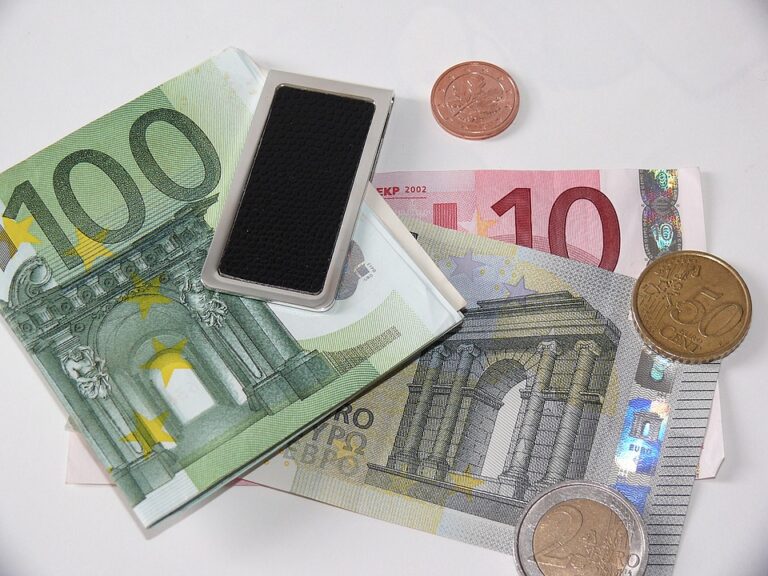Last updated Jun. 29, 2024 by Peter Jakes
Dave Ramsey’s Baby Steps and 22 Money Tips For Improving Your Finances
When it comes to financial advice, Dave Ramsey is a household name. Known for his practical and clear-cut approach to personal finance, Ramsey has helped millions of people regain control of their money and build wealth. One of his most renowned strategies is the "Baby Steps," a seven-step plan designed to take you from financial insecurity to financial freedom. Beyond the Baby Steps, Ramsey also provides numerous money tips that can be instrumental in bettering one’s financial situation. This article delves into Dave Ramsey’s Baby Steps and 22 money tips to improve your finances.
Dave Ramsey’s Baby Steps
Baby Step 1: Save $1,000 for Your Starter Emergency Fund
The first Baby Step is to save $1,000 for a starter emergency fund. This fund is to cover small financial emergencies without having to dip into your savings or worse, go into debt. It gives you a small financial cushion, which is essential when starting your journey towards financial peace.
Baby Step 2: Pay Off All Debt (Except the House) Using the Debt Snowball
Next, Ramsey encourages tackling your debts using the "debt snowball" method. This involves listing all your debts from smallest to largest, and paying off the smallest ones first. As each debt is paid off, you redirect your payments towards the next smallest debt. The momentum gained from small victories propels you through larger debt payments.
Baby Step 3: Save 3-6 Months of Expenses in a Fully Funded Emergency Fund
Once you are debt-free, except for your mortgage, it’s time to build a fully funded emergency fund. This fund should cover 3-6 months of your living expenses, providing a robust financial buffer against emergencies like job loss or medical issues.
Baby Step 4: Invest 15% of Your Household Income in Retirement
With your emergency fund in place, the next step is to invest 15% of your household income into retirement accounts such as a 401(k) or an IRA. This ensures that you are building a nest egg for your future and taking advantage of compound interest over time.
Baby Step 5: Save for Your Children’s College Fund
Ramsey recommends setting aside money for your children’s education once your own financial future is secured. Consider using tax-advantaged accounts like a 529 plan or an Education Savings Account (ESA) to make the most of your savings.
Baby Step 6: Pay Off Your Home Early
After securing your retirement and your children’s education, it’s time to attack your mortgage. Paying off your home early can save you thousands in interest payments and give you peace of mind knowing that you own your home outright.
Baby Step 7: Build Wealth and Give
The final step is to build wealth and give generously. With no debt, a solid emergency fund, and a paid-off home, you can focus on increasing your investments, giving to causes you care about, and enjoying your financial stability.
22 Money Tips for Improving Your Finances
Dave Ramsey also offers a plethora of financial tips to augment his Baby Steps. Here are 22 of the most impactful ones:
- Create a Budget: Use a zero-based budget to allocate every dollar of your income to a specific expense or savings goal.
- Use Cash for Discretionary Spending: Avoid overspending by using cash for categories like groceries and entertainment.
- Cut Unnecessary Expenses: Reevaluate your spending and cut out unnecessary subscriptions or luxury items.
- Increase Your Income: Look for side gigs or ways to monetize your hobbies.
- Use the Envelope System: Allocate cash for different categories and put them in envelopes. When the envelope is empty, you stop spending in that category.
- Avoid Debt: Commit to a debt-free lifestyle by avoiding credit card balances and car loans.
- Emergency Fund: Strengthen your financial position by maintaining an adequate emergency fund—three to six months of expenses is ideal.
- Buy Used: Save money by purchasing used items like cars, furniture, and electronics.
- Plan for Big Expenses: Save in advance for large purchases rather than financing them.
- Invest Wisely: Educate yourself about investing and ensure your portfolio is diversified.
- Negotiate Bills: Don’t be afraid to call service providers to negotiate lower rates.
- Learn to Cook: Cut down on dining out by learning to cook meals at home.
- Use Coupons and Cash Back: Maximize savings by using coupons and cash-back apps.
- Limit Dining Out: Reduce the frequency of dining out to save money.
- Review Insurance Policies: Periodically review and compare your insurance policies to ensure you’re getting the best deal.
- Pay Bills on Time: Avoid late fees and maintain a good credit score by paying bills promptly.
- Employer Benefits: Take full advantage of your employer’s benefits, including retirement matching and health savings accounts.
- Plan for Taxes: Be proactive about tax planning to minimize your liability.
- Save Windfalls: Anytime you receive a windfall, save or invest it rather than spend it.
- Stay Educated: Continually educate yourself about personal finance through books, podcasts, and courses.
- Teach Your Kids about Money: Educate your children about the value of money and the importance of saving.
- Health Maintenance: Stay healthy to avoid unnecessary medical expenses
✓ Short Answer
Dave Ramsey’s Baby Steps are a structured, step-by-step plan aimed at helping individuals achieve financial independence. By following these seven steps—from building an emergency fund to investing for retirement—alongside practical money-saving tips, you can significantly improve your financial situation.
Dave Ramsey’s Financial Philosophy
Dave Ramsey’s financial philosophy centers on living below your means, planning for the future, and giving generously. He emphasizes the significance of financial peace and the freedom that comes from being debt-free. His strategies are often rooted in common-sense principles that resonate with many people due to their simplicity and effectiveness.
FAQs
Q1: What is the debt snowball method?
A: The debt snowball method involves paying off debts in order of smallest to largest, regardless of interest rate. Pay minimums on larger debts and focus extra payments on the smallest debt until it is paid off, then move to the next smallest.
Q2: Can I still use credit cards while following the Baby Steps?
A: Dave Ramsey typically advises against using credit cards as he promotes a cash-based, debt-free lifestyle. However, if you can use them responsibly and pay off the balance each month, it is a personal choice.
Q3: Why should I save for retirement before my child’s college fund?
A: Prioritizing retirement ensures you won’t be a financial burden on your children later in life. College expenses can be funded through scholarships, grants, and part-time jobs, but there’s no loan for retirement.
Q4: How do I start my emergency fund if I’m living paycheck to paycheck?
A: Begin by cutting unnecessary expenses and increasing your income through side jobs. Every little bit saved can quickly add up to your initial $1,000 goal for a starter emergency fund.
Q5: Is it okay to pause Baby Steps for large expenses?
A: Ramsey typically advises against pausing the Baby Steps. Instead, budget for large expenses within your current financial plan to keep your momentum going.
In conclusion, Dave Ramsey’s Baby Steps provide a systematic approach to achieving financial security and wealth. By adhering to this plan and incorporating additional money-saving tips, you can take control of your finances and work towards a future of financial independence.




